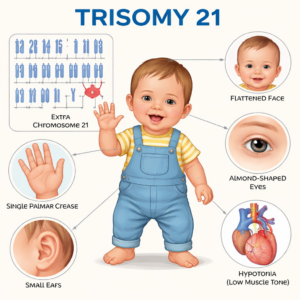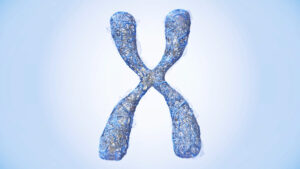As a parent, it’s only natural to keep a close eye on your child’s development and behavior. When your little one is bursting with energy, struggles to focus, or has difficulty controlling impulses, you might find yourself wondering if these behaviors are simply part of growing up or if they point toward something more, like attention deficit hyperactivity disorder (ADHD). This common neurodevelopmental disorder affects many children and can persist into adulthood. Let’s dive into the signs, causes, and ways to support a child with ADHD.
What is ADHD?
ADHD is not just about being hyper or inattentive. It’s a complex neurological condition marked by patterns of inattention, hyperactivity, and impulsivity that disrupt daily life and development. Kids with ADHD often face challenges focusing on tasks, staying still, and managing impulses. Importantly, ADHD isn’t caused by poor parenting or lack of discipline; it’s a well-documented medical condition.
Signs or Symptoms
ADHD manifests through various symptoms across three key areas: inattention, hyperactivity, and impulsivity. While every child is unique, some common signs include:
Inattention:
- Struggling to pay attention even during fun activities
- Frequently making careless errors in school work
- Trouble staying organized or following through on tasks
Hyperactivity:
- Fidgeting or an inability to sit still
- Talking excessively or blurting out answers
Impulsivity:
- Difficulty waiting for their turn
- Interrupting others frequently
While these behaviors can appear in any child occasionally, in those with ADHD, they occur more frequently and impact their ability to function across different settings.
Causes
The exact cause of ADHD remains elusive, but research points to several contributing factors:
- Genetics: ADHD often runs in families, suggesting a genetic component.
- Brain Structure and Function: Kids with ADHD frequently show differences in brain structure and activity, particularly in areas related to attention and impulse control.
- Environmental Factors: Exposure to toxins like lead, premature birth, and prenatal substance exposure may elevate the risk of developing ADHD.
Despite these insights, pinpointing a single cause for ADHD is rare, as no single cause can be identified in most cases.
Related Conditions in Children with ADHD
Children with ADHD may also cope with other conditions that complicate diagnosis and treatment:
- Learning Disabilities: Reading, writing, or math difficulties can make academic tasks challenging.
- Oppositional Defiant Disorder (ODD): A pattern of uncooperative or hostile behavior towards authority figures.
- Anxiety Disorders: Excessive worry that interferes with daily life.
- Depression: Persistent feelings of sadness or disinterest.
- Speech or Language Disorders: Delays in communication skills.
- Sleep Disorders: Trouble falling or staying asleep can exacerbate ADHD symptoms.
- Conduct Disorder: In severe cases, it involves aggressive behavior or rule-breaking.
Understanding these related conditions helps parents manage ADHD more comprehensively
ADHD Across Different Age Groups
Toddlers and Preschoolers
In younger kids, distinguishing between normal behavior and early signs of ADHD can be tough. If your toddler seems excessively hyperactive compared to peers or struggles consistently with simple instructions, these could be early warning signs. Look out for:
- Frequent tantrums from frustration
- Difficulty focusing on play for long periods
- Constantly switching activities without finishing them
School-Aged Children
As children enter school, symptoms may become more pronounced. Teachers might notice issues with focus or following directions. Challenges often include:
- Completing homework
- Forgetfulness
- Excessive talking
- Difficulty socializing due to impulsive actions
How to Help a Child with ADHD
Supporting a child with ADHD involves a mix of strategies: behavioral interventions, educational support, and sometimes medication. Collaborate closely with healthcare providers to develop a tailored treatment plan.
Recognizing developmental delays or conditions like ADHD early and understanding their symptoms can significantly impact a child’s growth and development. The FDNA Family Health Checker app is designed to help parents address concerns about their child’s developmental and genetic health by offering AI-powered assessments through a free, user-friendly platform. Early diagnosis and intervention are important because many developmental delays may be linked to genetic factors.
The app allows parents to assess their child’s health conveniently from home. Upon completing the assessment, parents receive a free evaluation report outlining potential areas of concern. The app also offers options to connect with healthcare professionals for further evaluation and a no-cost genetic test for eligible children. While AI tools like the Family Health Checker app can simplify and accelerate the diagnostic process, consulting healthcare professionals for a formal diagnosis and tailored advice remains essential.



